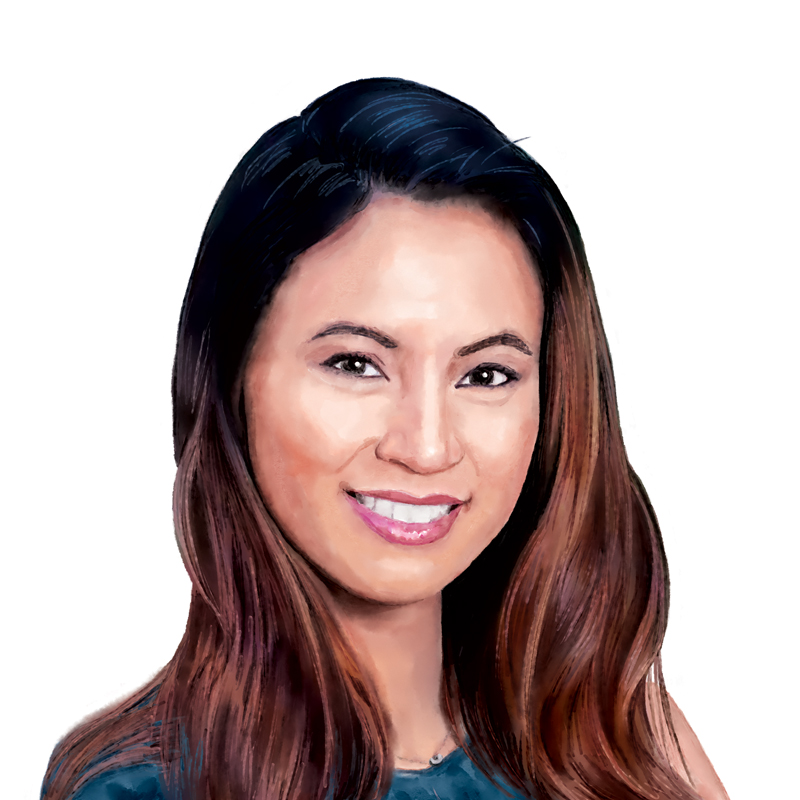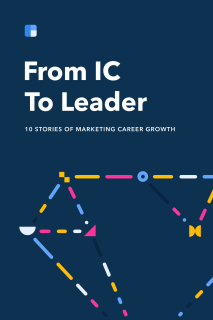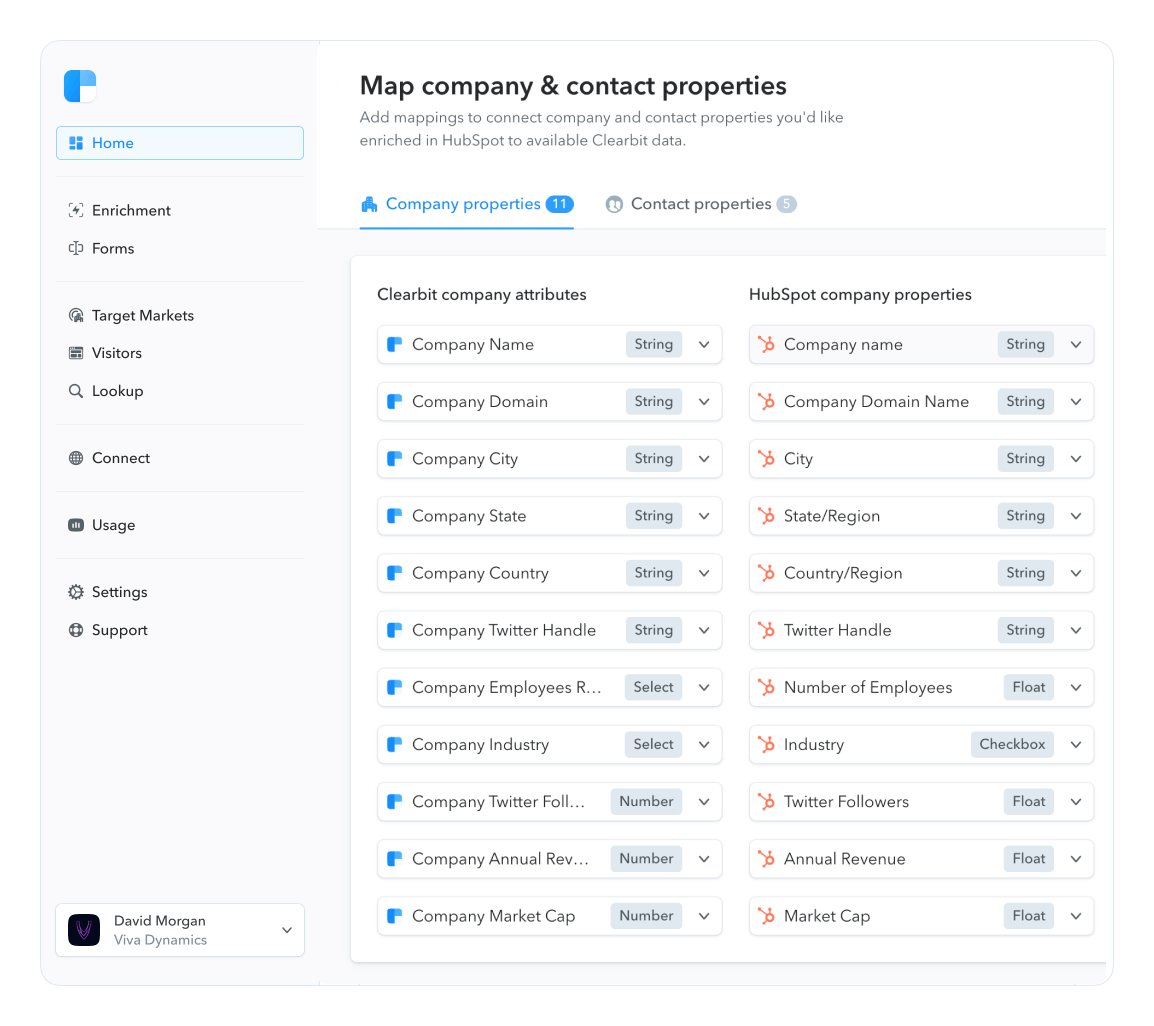Chapter 3
12 minutes
Sophia Eng

Sophia Eng VP of Growth Marketing at Trade the Fifth
At the end of 2011, Sophia Eng had too much on her plate. She was 28, married with an infant daughter, living in Albuquerque but flying back and forth to her native California, where her mother was dealing with heart troubles. She was operating two businesses simultaneously: one, a wedding-photography studio she'd opened two years earlier and the other, a frozen-yogurt emporium she built from scratch the following year, which was doing a brisk trade.
It was time to make a change. She would sell the businesses and move back to California to be closer to her parents.
To accomplish that, though, she'd need a new job. She targeted tech, because there were a lot of openings in California, and the field paid well. And when she googled well-paying careers in tech, she found social-media marketing at the top of the list.
But she had zero job experience in tech or marketing.
Or did she?
-
As a young girl, she'd taught herself to code because she wanted to develop electronic games and build a website.
-
While in college, she'd founded a campus Vietnamese Students Association, serving as president of the group for three years.
-
When she started her photography business, she'd set herself apart from the staid studios that predominated in Albuquerque at the time, positioning herself as a photojournalistic wedding photographer. She'd built out her own website, teaching herself on the fly how to market online.
-
The frozen-yogurt bar represented another leap forward. She'd seized on a trend that hadn't yet hit town and propelled it to success with an online hype campaign that had crowds lined up outside the door on opening day.
So she started prospecting for jobs in California.
"I started tweaking my LinkedIn profile, making it look like I had done social media — which I did; I just did it for myself," says Sophia. "I shifted my title from 'Owner, Co-Founder' or 'Founder' to 'Director of Social Media Marketing.' I just started speaking that way."
Eight years later, at age 36 and the mother of two young children, Sophia is still speaking that way — and a whole lot of people are listening.
But we're getting ahead of the story.
Turning on "just do it" mode
The child of Vietnamese immigrants, Sophia Nguyen (Eng is her married name) grew up in California, then moved cross-country to Washington, D.C., for college, where she majored in biological sciences, intending to go to medical school. But having earned her bachelor's degree at George Washington University, she concluded that the long, unpredictable hours and the need to prioritize patients over family didn't suit her. That led her to a master's degree in clinical psychology.
Much to her own surprise, she fell in love with Maj. Timothy Eng, an active-duty army engineer. They married, and after Tim returned from an 18-month deployment to Iraq, settled in Albuquerque, where he would be stationed for the next six years.
In need of a job, Sophia seized on photography, which until then had been nothing more than a hobby.
"I already knew how to build a website, because I had done that when I was in seventh grade," she recounted. "I had fun building out the site — that's where I learned how to blog, learned how to do digital marketing for myself. Within a year and a half, I was honored as one of the top five wedding photographers in the state of New Mexico."
That success inspired Sophia to open a second business, bringing to Albuquerque the self-serve frozen-yogurt craze that was sweeping California. She leased a former cell-phone store, redesigned the space from scratch, and gave herself a crash course in the finer points of fro-yo.
"I was totally just bootstrapping this whole thing," Sophia said. "We brought in espresso drinks, we brought in boba drinks. I actually took a part-time job at Starbucks to learn how to make espresso drinks like the experts. So I would be up at, like, 5:30 in the morning. I wanted to learn hands-on, I wanted people to yell at me. I was going to know how to do it under that kind of pressure."
And while the store was under construction, Sophia built buzz. "That's where I really learned growth marketing," she said. "I created this hype to all of the high school students. I knew the target audience."
Sounds like Sophia was taking a chapter or three out of Duct Tape Marketing, the method John Jantsch piloted to popularity a decade ago, no?
"Totally ... except that I didn't know anything!" she replied. "I didn't go to school for it. I didn't have any mentors at this time. I just was in survival mode and 'Just Do It.'"
The result?
"Within the first year, we hit seven figures, which was awesome to see printed out on a receipt. And Albuquerque is a small city." It was, she says, "a big, big eye-opening experience. Honestly, you don't really understand marketing until you actually own it."
Five jobs in five years
Sophia's first job in California, for iBank, a company that developed a personal-finance app, lasted six weeks. She'd planned it that way — to get her closer to where she wanted to be geographically, and to get her résumé in line with her goals.
"I remember thinking, 'Okay, so I'm going to take this job, I'm going to make sure that I show proof that I did email marketing, I did a landing-page redesign, I built a website,'" she said.
And every night after work, she added, she went to Starbucks to tinker with her LinkedIn profile.
"I spent a lot of time studying other people's profiles in the job that I wanted in the Bay Area. I looked at what I was currently doing, and how I could tweak it to make the keywords sound alike — but with the work to back it up, so if I got the interview, I could speak to that. I did that for six weeks. And then I started applying like crazy."
Over the next five years, Sophia changed jobs five times. (Notably, each move began with a prospective employer recruiting her via LinkedIn. "I'm a firm believer," she said of the professional networking hub. "I even taught a résumé and LinkedIn workshop course because it's mind-blowing if you get it right.")
Her first stop after iBank was Autodesk, which had come up with a mobile version of its flagship product, AutoCAD drafting software.
"That was an incredible experience. I did all the social media," Sophia said of her seven-month tenure. "They didn't have any designers. I was doing the images, the graphic design, myself. Now that I've worked with larger corporations, they have designated design teams, but while I was at Autodesk I was creating images myself. I was really good with Photoshop because I had done it with our own photography."
Then came a startup, Grokker, which sells a mobile wellness app.
"Grokker was great because I wanted to work in a startup," Sophia said. "I had realized that Autodesk was a very big cruise ship that I was trying to effect change in, and it was very difficult. I wanted to move into a startup where I could make the changes, I could see the data, I could see the areas of opportunity. That was my first role where I was leading all of marketing for — I think we were at 17 employees then."
Four months later, she was on the move again, having been recruited away by Workday, the ERP-software developer. Sophia spent three and a half years there, moving midway through from a post on the product-marketing side to a new role that focused on digital optimization and global-search marketing.
By mid-2017, though, the confluence of factors convinced Sophia that it was time to move on again. The initial impulse was, simply, an appetite for change.
"When you join a big corporation — I think people get comfortable," Sophia explained. "And that's where I had my second kid. It was very comfortable, but I found myself going to San Francisco a lot just for fun, to listen to startup companies talk. I would come back and tell people, and they're like, 'Why would you go listen to startups?' Like, 'We're not a startup anymore.'
"And I thought, 'That is really limiting.' I'm going to these places because there's a hunger inside of me to want to learn more — to test. Because if you're going to test as a startup, you know the top trends, you know what's going on, you're at the tip of the spear in terms of the growth marketing, because you have to. Since I don't have the freedom with budget to test and I'm running older campaigns, I love to learn to see how I can go back and revamp my campaigns, my strategy, my tactics.
"But I found that I got a lot of pushback, because 'we aren't a startup company, we are a brand to protect.' And it was very difficult."
It went deeper than that. Sophia was beginning to get invitations for speaking engagements — an extracurricular activity that wasn't permitted below the executive level at Workday.
On one hand, she was petrified at the thought of speaking in front of an audience. But she bridled at being told what she couldn't do. "It's one thing if I hold myself back, because I'm very aware that there are areas, and probably not aware of other areas, where I'm holding myself back," she said. "But it's a whole other thing if someone else is holding me back and I am not allowed to grow."
She wound up taking a few months off before making a lateral move to InVision, a company that offers a digital product-design platform — and one that explicitly granted her carte blanche to do speaking engagements.
"It's an incredible company," Sophia said of InVision, where she wound up spending a year. "I went from feeling like an A-plus student to, like, C-minus, maybe I should withdraw. The other challenge was the fact that I had to work around the clock, because there are people working in all different time zones. It was pretty insane. Even though I got to work from home, there was no work-life balance."
The next stop — and the last, to date: Trade the Fifth, a small company that sells software to stock traders who rely on technical analysis.
Hear Sophia roar
Sophia enrolled in a public-speaking course for women, joined her church choir, and took voice lessons. "I just needed to get on that stage and do something so it wouldn't be so scary when I was giving a presentation," she told Forbes in 2017.
Having found her voice, she started speaking at growth-marketing conferences. She also used her newfound platform to address the tech industry's notorious reputation as a men's club in August 2017, after a software engineer at Google wrote a lengthy internal memo in which he argued (among other things) that biological differences between men and women "may explain why we don't see equal representation of women in tech and leadership."
Not surprisingly, given that Google was under investigation by the U.S. Department of Labor for its gender pay gap at the time, the memo went viral on social media, where it triggered a cacophonous backlash. Its author was fired and subsequently sued his former employer for discrimination.
The memo had leaked on a Friday. By sheer coincidence, Sophia was scheduled to teach a workshop for women at Google headquarters the following Tuesday. The day before the event, she published a response to the memo on her LinkedIn page.
In the essay, entitled "Hear Us Roar: A Manifesto for Women and Minorities in Startup, Tech, and Business Communities," Sophia exhorted women and minorities to join her in speaking out, asserting that "our silence is what allows the resounding echo chamber of misogyny and prejudice to exist."
"I didn't realize it — that was my first time writing a media article at all — but literally overnight it went viral," Sophia marveled in retrospect, noting that her manifesto caused a spike in requests for speaking engagements and podcast interviews.
The episode also reawakened her impulse to organize a real-life community — the same impulse, she realized, that had led her to found the Vietnamese Students Association back in college. This time around, she formed Women in Growth with Dani Hart to provide support to women in roles that are male-dominated, elevate their voides, and teach teams how to be more inclusive.
"I'm noticing that women really need to be in growth careers — because we have empathy," Sophia said. "You have to talk to users, and understand them, so you can then go back and create better products. Right?" She foresees creating a job board for companies seeking to recruit women in growth, and perhaps, a training center specifically geared to women considering careers in growth marketing.
"This is the future," she said. "I have two girls, too. I think about them, and the crazy things that I'm doing, and I just hope that maybe in 20 years, or 30 years when they're at my age, they won't have the challenges that I've had to overcome."
Takeaways from Sophia Eng’s growth path:
- Take jobs as learning opportunities to gain new, hands-on skills.
- Study the profiles of people who have the jobs you want. Then, pattern-match on where to learn, gain experience, and even add keywords on a résumé.
- Don’t underestimate the power of LinkedIn! It’s a place to market yourself — that can provide a stream of inbound job opportunities.
- Take a moment to notice what’s holding you back from your own growth to decide if you need a change or to challenge yourself in a new way.

